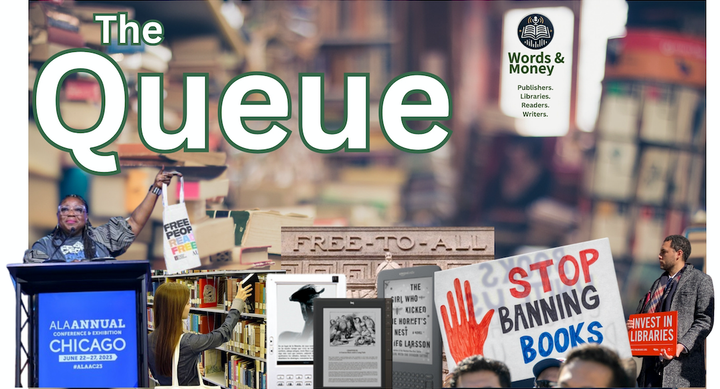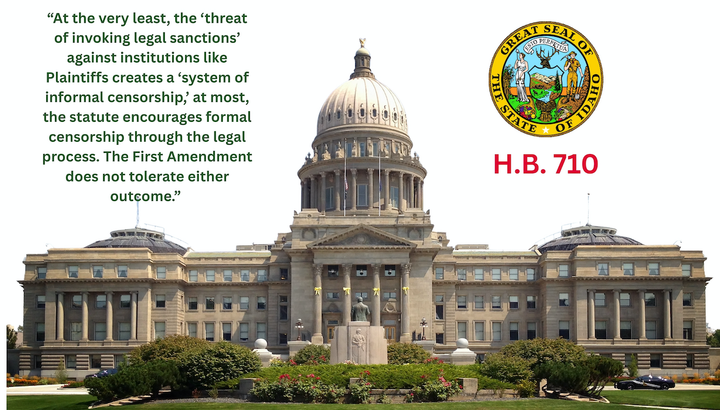The Queue: Library News for the Week Ending August 22, 2025
Florida governor Ron DeSantis vows to appeal a legal decision over book bans in Florida schools; a new study charts a worrying decline in pleasure reading; Trump escalates his attacks on the Smithsonian; and IFLA holds its global conference in Kazakhstan.
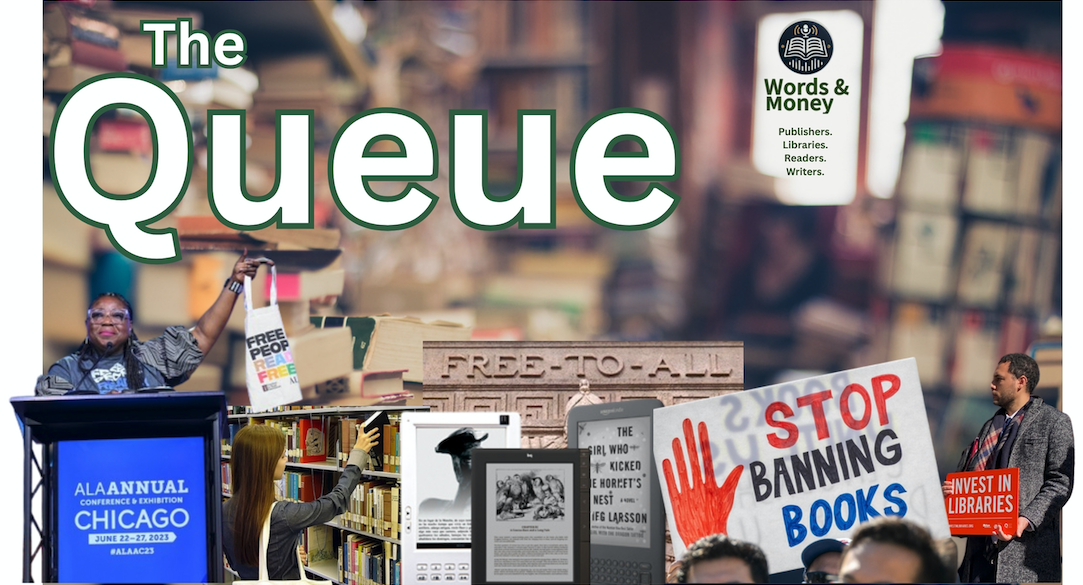
Freedom to read advocates notched a major legal victory last week in Florida when a federal judge gutted two book banning provisions in a 2023 state law. But this week, Florida officials are vowing to fight back.
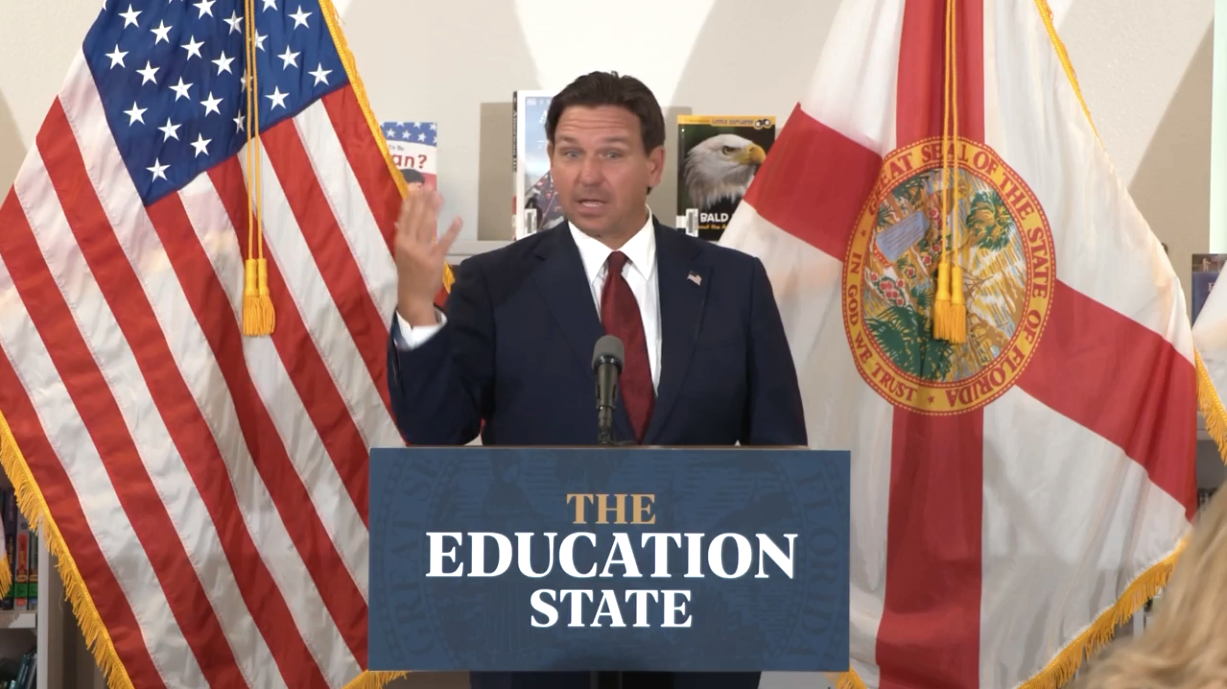
As reported in numerous outlets, including Florida Politics, Governor Ron DeSantis this week confirmed that the state will appeal Judge Carlos E. Mendoza's decision to wipe out two controversial provisions in HB 1069, which observers say has led to sweeping and unconstitutional book bans in Florida schools.
“It’s pretty clear we’re in front of a judge who is not going to give us a fair shake on this. We’re already prepared,” DeSantis told reporters, reading from the right wing playbook by accusing Judge Mendoza of being an activist judge. “They always find some judge to do something at some point. And you know, more often than not, we get it rectified on appeal.”
DeSantis made his remarks at a press conference in which the state announced it was also suing two major textbook publishers, McGraw Hill and Savvas, for allegedly overcharging Florida schools.

“Our lawsuit exposes a textbook case of corporate greed—companies charging Florida schools more than the law allows, pocketing the difference, and sticking taxpayers with the bill,” said Attorney General James Uthmeier, in a release. According to the state, McGraw Hill and Savvas "knowingly charged certain Florida school districts more than the lowest price they offered to other districts," in violation of Florida law.
"Under Florida law, publishers must give every Florida school district the best price offered anywhere in the nation," the release explains.
Advocates Rally for the Freedom to Read in Florida

First Coast News reports that freedom to read advocates rallied outside the Florida Board of Education meeting this week. "Shortly after the Florida Board of Education finished its August meeting in St. Augustine Wednesday, a group of authors, parents, students and literature advocates gathered just outside the meeting room. PEN America, a freedom of literature nonprofit, helped lead the gathering," the article notes.
In his comments, PEN America's Ben Johnson said he was happy with Judge Mendoza's ruling last week, but he remains concerned about "state overreach because we’re finding the state doesn’t care about rules."
Study Finds a Worrisome Decline in Americans Reading for Pleasure

A new study has found that the number of Americans reading for pleasure is declining precipitously. Published in the journal iScience, the study analyzed data from more than 236,000 Americans who participated in the American Time Use Survey between 2003 and 2023.
"A sweeping new study from the University of Florida and University College London has found that daily reading for pleasure in the United States has declined by more than 40% over the last 20 years—raising urgent questions about the cultural, educational and health consequences of a nation reading less," notes Phys.org. "The findings suggest a fundamental cultural shift: fewer people are carving out time in their day to read for enjoyment."
While the study did not look at why Americans are reading less, researchers point to "multiple potential factors," including "the rise of digital media, growing economic pressures, shrinking leisure time and uneven access to books and libraries."
Another notable finding: publishers apparently failed to create more readers during the pandemic, despite selling more books. "We expected to find increases in reading from 2019 to 2021 due to the rise in print book sales during the pandemic. Yet, we did not see an increase in the proportion of participants engaged in reading," the study notes. "There may have been a slowing of the decline in reading, and a slight increase in the amount of time spent reading by those who read, but these differences were very small."
A Reflection on Reading Habits

Via Library Futures, an interesting piece for download by Library Futures Research Network member A.J. Boston who looks back at what—and how—he read in 2024.
Boston weaves a log of the 34 books he reads over the course of last year with "observations about how he reads them–in print or in ebook form, and whether those titles are purchased, borrowed, or licensed," explains Laura Crossett, in post on the Library Futures web site. "Boston asks what the technology behind digital reading is doing not to his brain as a reader (in the manner of The Shallows and a hundred online think-pieces)," she writes, "but rather what it is doing to our ideas about books, libraries, and readers and the social and economic contracts we have historically made among them."
Trump Administration Escalates Its Attacks on The Smithsonian
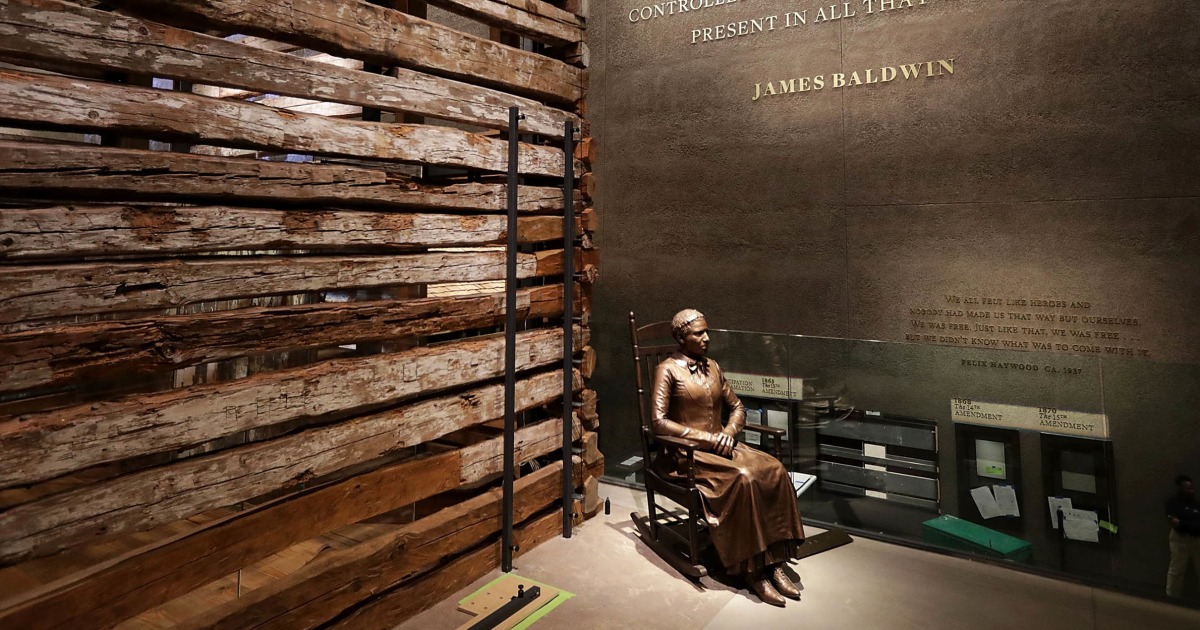
After issuing an executive order demanding a review of all the programs and exhibits at the Smithsonian last week, NBC News reports on President Trump's comments this week that the venerable institution's portrayal of U.S. history is "too negative" and too focused on "how bad slavery was."
According to the report, "Trump said he would subject the museums to 'the exact same process' his administration has conducted of universities," with the goal of making the Smithsonian less "woke.”
Meanwhile, on August 21, the White House posted a list of what it considers to be "woke" programs and exhibits at the Smithsonian. The Orwellian post is titled: President Trump Is Right About the Smithsonian. And yes, this is on the White House website.

When It Comes to LGBTQ Library Books, Thou Shalt Steal, Advises One Kentucky Church

Via the Kentucky Lantern, a local church in Kentucky is urging its members to check out books that portray gay characters... and never return them.
"Pamela Wilson Federspiel, who has been director of the library in downtown Shelbyville for 34 years, says the action is tantamount to stealing. But three leaders of the Reformation Church of Shelbyville defend what they call an act of civil disobedience," the report notes.
In an email to the Lantern, the church's pastors admit they have "urged Christians, both locally and across the country, to search their libraries for books that promote sodomy, gender confusion and rebellion against God—and if found, to check them out and never return them."
Arkansas Appoints New Public Library Members
Tess Vrbin at the Arkansas Advocate reports that Arkansas Governor Sarah Huckabee Sanders has named six new members to the State Library Board, after a GOP-backed state law mandated an overhaul.
"The overhaul is part of the Republican legislative supermajority’s ongoing efforts to regulate public library leadership, funding and content. There have been similar conservative-led local efforts throughout the state in the past few years, including in Yellville and Benton," Vrbin writes.
Wyoming Tables Library Bill After 'Awkward' Debate
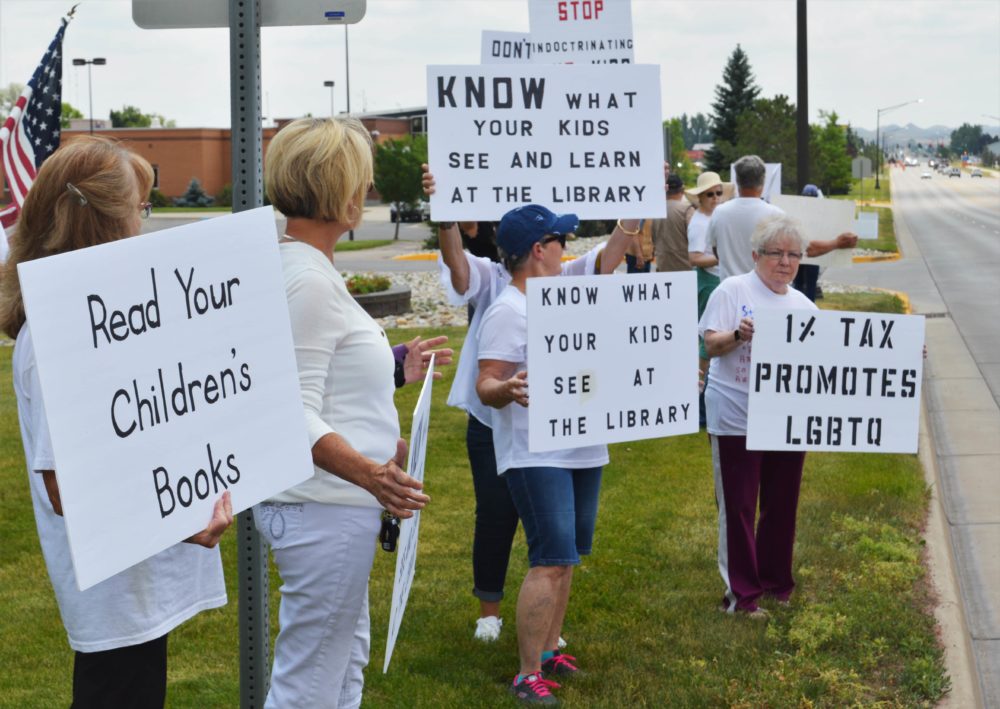
WyoFile reports that a bill to ban sexually explicit materials in Wyoming libraries, with huge fines for libraries found in violation, has been tabled for now, after significant public opposition.
"Opponents asked legislators to respect library professionals’ processes for selecting books, and the existing avenues people can take to request a text’s removal. Those structures allowed local communities, not distant politicians, to shape their library collections," the report notes. "But many legislators believe it’s within their purview to regulate library books. Sheridan Republican Rep. Laurie Bratten cited a section of the Wyoming Constitution that deals with protecting Wyomingite’s morality."
Book Banners Target Romance

Over at Book Riot, Kelly Jensen leads off her weekly censorship news column with an observations that book banners who started by targeting books for kids and schools are expanding their reach to adults and public libraries.
"Over the last year, it’s become clearer and clearer that there is another target for the far-right in its relentless attacks on the intellectual freedom of people who aren’t subscribed to their rigid and bigoted morality: romance books," Jensen writes. "The same tactics deployed to create numerous laws and policies governing the books available 'for children' in public schools and public libraries are being deployed here."
It's Not Just Books...

The Electronic Frontier Foundation has a good post about the emergence of internet Age Verification laws in several states.
"As of July 1st, South Dakota and Wyoming enacted laws requiring any website that hosts any sexual content to implement age verification measures. These laws would potentially capture a broad range of non-pornographic content, including classic literature and art, and expose a wide range of platforms, of all sizes, to civil or criminal liability for not using age verification on every user," the post notes. "These laws expand on the flawed logic from last month’s troubling Supreme Court decision, Free Speech Coalition v. Paxton, which gave Texas the green light to require age verification for sites where at least one-third (33.3%) of the content is sexual materials deemed 'harmful to minors.'”
And these state laws are not outliers, EFF warns. "They are part of a growing political movement to redefine terms like 'obscene,' 'pornographic,' and 'sexually explicit' as catchalls to restrict content for both adults and young people alike," the post adds. "What starts in one state and one lawsuit can quickly become a national blueprint."
Dallas Public Library Looking at Cutting Branches

KERA News in Texas reports that the Dallas Public Library could close five branch libraries. "Dallas Public Library Director Manya Shorr is also proposing to close four additional library branches under the 2026-27 budget due to funding constraints and as part of a shift toward a regional model," KERA reports.
“What I'm hoping to achieve is seven day a week branches that can serve a larger community base with enhanced programs, enhanced services and, of course, additional days and hours,” Shorr told the outlet. “Shorr said Dallas libraries have changed service hours eight times in the last 15 years to save money. That creates instability which makes it harder for the community and library to connect, so by closing some locations they can keep others open longer for the whole week, she said."
IFLA Meets in Kazakhstan

The Astana Times has a piece on IFLA's (International Federation of Library Associations) 89th World Library and Information Congress in Astana, Kazakhstan, which wrapped up today, the first time Central Asia has hosted the event. Nearly 1,700 participants from 114 countries attended, the report notes, including some 380 Kazakh librarians.
And Finally This Week...

We like to close with something positive when we can, and Zócalo Public Square has a great piece this week from City Librarian of Los Angeles John Szabo, who writes about the library's role in the community.
"As city librarian of the Los Angeles Public Library, I have come to know that L.A. is a city of readers. The library has more than 6 million books along with millions of movies, music collections, magazines, and more. In 2024, our patrons borrowed more than 14.5 million e-books and audiobooks, making us the number one e-lending library in North America," he writes. "But Los Angeles is also a city where stories come to life—and I have a prime seat to watch them unfold. LAPL is a public square that is itself a storyteller."














